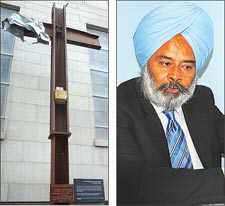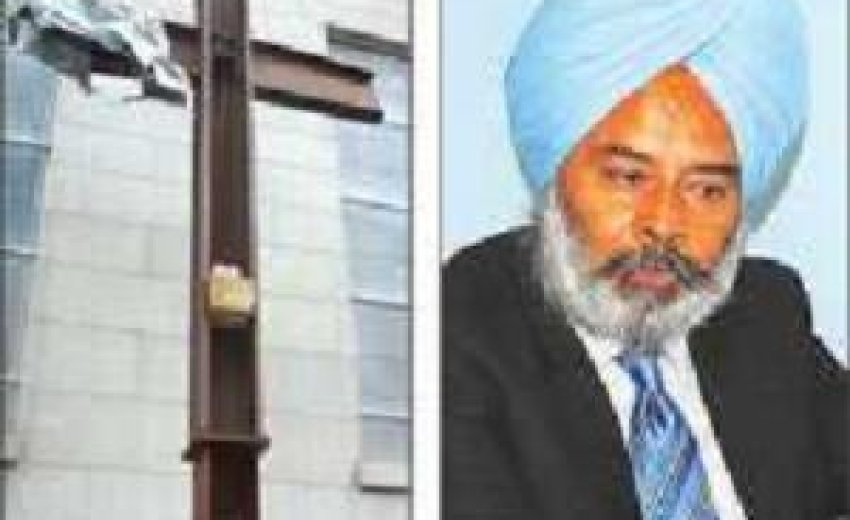 |
| PHOTO BY ELIZABETH DALEY, RIGHT, FILE PHOTO |
In the days after news of al-Qaeda leader and 9/11 mastermind Osama bin Laden’s death spread across the borough and the world, some breathed sighs of relief while others worried about retaliation. For Queens Muslims and Sikhs, the news was welcome. “I am pretty sure that I will be taunted less and people will stop calling me bin Laden,” said Harpreet Toor, a Sikh from Richmond Hill who wears a turban to honor his religion.
Though bin Laden was Muslim, not Sikh, Toor, who has dark skin and wears a headcovering to work every day said he was often harassed on the subway. “I don’t blame them,” Toor said of those who thought he was Muslim, “but just the presumption that you can take your anger out on anyone — this is un-American,” he said. When Timothy McVeigh bombed Oklahoma City, “it was just him,” Toor said, pointing out that residents didn’t decide to go after all people who looked like the bomber. “I have been told so many times: ‘go back to your country,’” Toor continued. “We end up proving our sincerity to this country, day after day,” Toor said of having to respond to verbal attacks.
Bin Laden was killed by U.S. forces in Abbottabad, Pakistan on Sunday. After a 45-minute ceremony, his body was dumped into the Arabian Sea, in a practice said to be consistent with his Islamic faith. However, Queens Muslims say burials at sea are not considered traditional.
“I have never heard of a funeral where the body was thrown in the ocean. But I can understand why it was done,” said southeast Queens resident and Riker’s Island imam, Charles Bilal. “Maybe the U.S. government didn’t want him to be memorialized.”
According to Queens College Islamic Studies professor, Abdurrahman Atcil of Turkey, in Islamic tradition, dead bodies are cleaned and placed into the Earth in a shroud. A funeral prayer from the Koran is then recited. “If a Muslim dies and is buried without a funeral prayer performed, then it is the duty of Muslims to perform this funeral prayer. I expect Muslims around the world this Friday will perform the funeral prayer,” Atcil said, careful to add that those who did would not be indicating their allegiance to bin Laden.
In Atcil’s native Turkey, bin Laden’s death was hailed by Abdullah Gul, president of the predominantly Muslim country. “Most of the people in the Muslim world think that bin Laden misrepresented Islam,” Atcil said. Though his death is unlikely to eradicate terrorist activity, “this will certainly undermine the appeal of al-Qaeda,” Atcil added.
He was hopeful that youth who may have otherwise been diverted to al-Qaeda by its terrorist leader, may decide to join successful and popular democratic movements similar to those in Tunisia, Egypt, Syria and Libya.
Bilal was hopeful his faith would gain a new image. “Terrorism is not our religion. We condemn that 100 percent,” he said. Bilal explained that the Koran could be misinterpreted by people like bin Laden, but said it was the duty of Muslims not to follow religious leaders blindly, and to use their own moral judgment. It is his hope that the al-Qaeda leader’s death will “bring back the face of peace and justice to Islam, so that we can see the Muslim people as wanting the same thing anyone else wants.”

